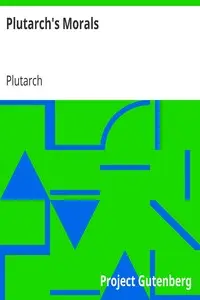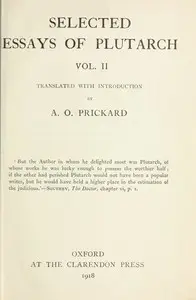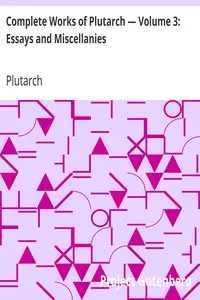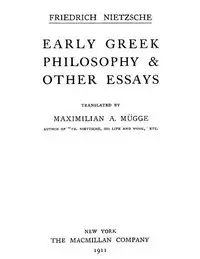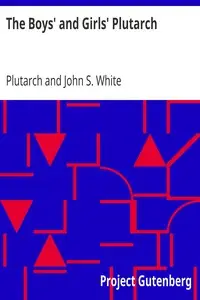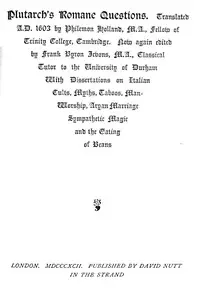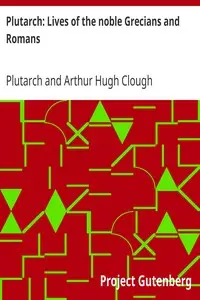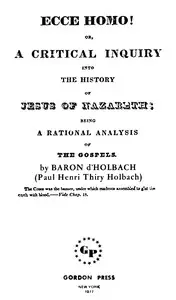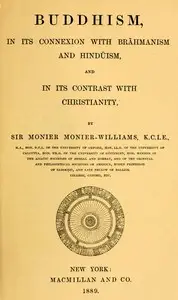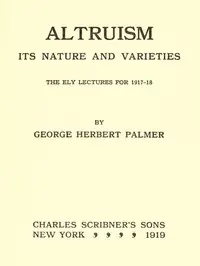"Selected Essays of Plutarch, Vol. I" by Plutarch, is a compilation of thought-provoking essays that dives into ethics, education, and how people should act in society. It provides a window into the values and morals of the time it was written. Plutarch, writing in the early second century AD, conveys his philosophies and beliefs in order to teach readers how to live a virtuous and moral life. The book begins with a preface and introduction that sets the scene for the essays. It establishes Plutarch's credibility and the historical setting of his writings. The translator, T. G. Tucker, emphasizes how important these essays area for understanding the civilization of the average person around the year 100 AD. Tucker suggests these essays were selected for their representative qualities and the wide variety of interesting topics they cover, and are not simply the easiest to obtain. Key themes such as education, civic duty, virtue, and how to understand social behavior are introduced and then broadened into a unique allegorical dinner party including the Seven Sages of Greece, mixing wisdom with social interactions.
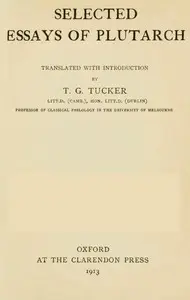
Selected Essays of Plutarch, Vol. I.
By Plutarch
Venture into the world of ancient wisdom, as philosophical essays explore ethics, education, and virtuous living in early second-century society.
Genres
Released
2020-07-11
Formats
epub
epub3 (images)
epub (images)
mobi (images)
mobi
txt
Free Download
Summary
About the AuthorPlutarch was a Greek Middle Platonist philosopher, historian, biographer, essayist, and priest at the Temple of Apollo in Delphi. He is known primarily for his Parallel Lives, a series of biographies of illustrious Greeks and Romans, and Moralia, a collection of essays and speeches. Upon becoming a Roman citizen, he was possibly named Lucius Mestrius Plutarchus.
Plutarch was a Greek Middle Platonist philosopher, historian, biographer, essayist, and priest at the Temple of Apollo in Delphi. He is known primarily for his Parallel Lives, a series of biographies of illustrious Greeks and Romans, and Moralia, a collection of essays and speeches. Upon becoming a Roman citizen, he was possibly named Lucius Mestrius Plutarchus.
Total Reviews
10.0k
Total reviews from Goodreads may change


